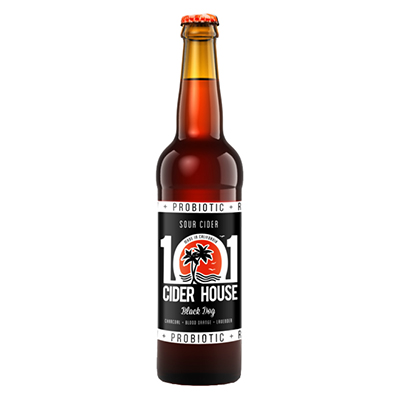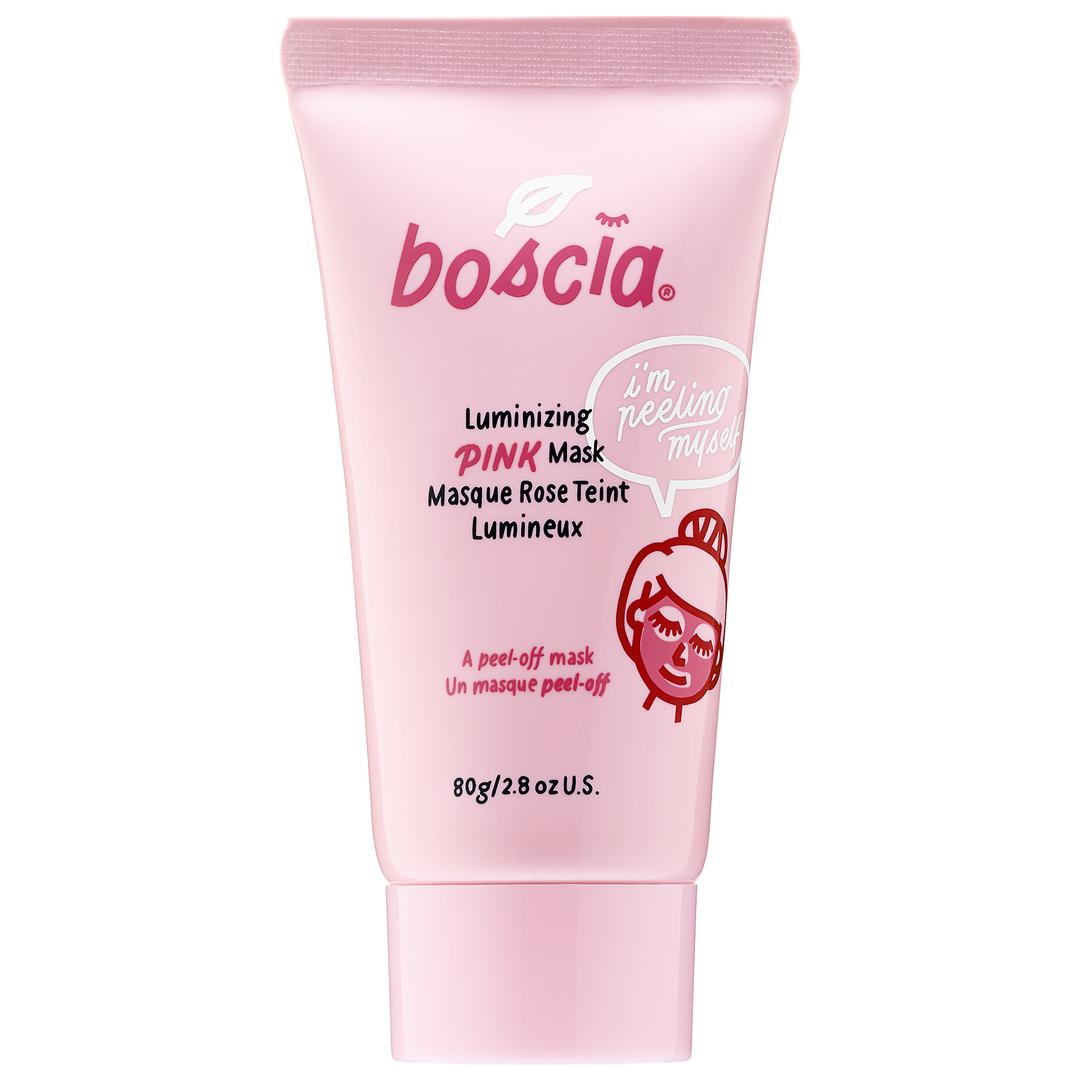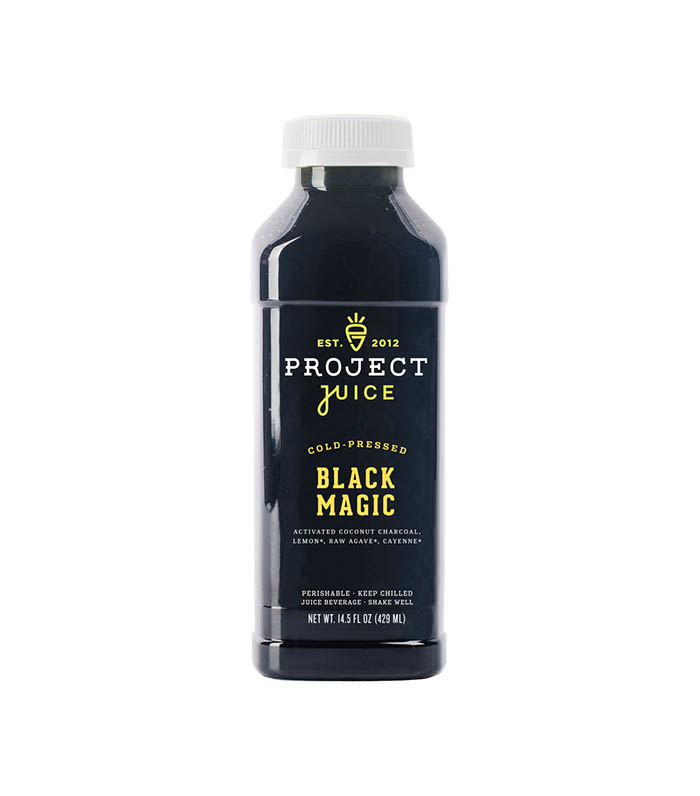Urgent: We Found a Cocktail That Might Actually Be Good for You
When I officially entered my late 20s this past summer, I blew out my candles fully anticipating a few changes: less going out, more moisturizing, and maybe even some astrological drama as my Saturn enters its return. One thing that I wasn’t prepared for, however, was my body’s almost instantaneous revolt against alcohol. In my early 20s, I could shoot tequila, dance all night, and wake up the next day with dewy skin and abundant energy.
Since my birthday, however, my relationship to booze has soured nearly overnight: Two glasses of pinot noir can induce headaches, gut woes, and a sense of lethargy that seems to linger for days after drinking. I’ve also noticed that my skin is more easily affected by alcohol: dark circles and patches of eczema sometimes pop up after a single libation. I’m not interested in returning to drinking with the abandon of a 23-year-old—more power to those who still can, I’m just officially old, tired, and more interested in what’s on Netflix—but I do occasionally want to enjoy a cocktail without paying dearly for it the next day.
I was lamenting about this quandary to a friend when she offered a surprising solution: booze infused with activated charcoal. My friend—who happens to be gluten- and dairy-free and thus hip to the best in dietary restriction–approved dining—swore by 101 Cider House’s Black Dog Cider, a raw, probiotic, and charcoal-forward concoction. I was skeptical, but also intrigued. Could the benefits of what essentially sounded like a very robust kombucha outweigh alcohol’s myriad damaging effects?
To find out, I spoke with Marra St. Clair, a board-certified nutritional consultant and health coach and co-founder of Project Juice. “Although it may seem a recent trend, healers from Chinese medicine, Ayurvedic medicine, and Western medicine have been using [charcoal] for over 10,000 years as a way to absorb and eliminate toxins in the body as a result of your food and environment, counteract ingested poisons, and enhance digestion health,” St. Clair explains. “It is a highly absorbent material with millions of tiny pores that capture, bind, and remove up to 100 times the charcoal’s weight in toxins, including those that we ingest after drinking alcohol.”
In short, activated charcoal is a carbon-rich material—like wood, bamboo, or coconut husk—that’s naturally processed to become microporous and incredibly absorptive. The result: Activated charcoal can sop up over 100 times its weight in toxins. As one scholarly review of recent charcoal studies puts it, “Activated charcoal may be the single most effective treatment in many types of poisoning.”
I’ve used charcoal in masks and cleansers to deep clean, tone, and draw out impurities, so it makes sense that the carbon would work as well inside as out. Obviously, the next step was to put Black Dog to the test.
Full disclosure: I’m not usually a fan of hard cider, nor am I used to imbibing midnight-black beverages. However, I bravely decided to pop open a bottle after dinner one night. I enlisted a friend to partake in the drinking, in case my own biases against cider skewed the experiment. Black Dog is powered by coconut charcoal, blended with blood orange and lavender for a bubbly, probiotic-rich beverage. The outcome is silky, tart potion that wasn’t cloying in the least. My friend and I each polished off a few glasses and congratulated ourselves for basically consuming health food.
In an effort to re-create my least healthy drinking habits, I made an effort to go to sleep almost immediately after imbibing, so that I would feel the maximum effects of the cider on my rest and digestion cycles. (What can I say, I’m willing to suffer for science. Also, I just like going to bed before 11 p.m.) To my surprise, I slept soundly through the night—not only would two glasses of beer have disrupted my sleep, but with my sensitive system, two candy bars can keep me up all night, too. I woke up feeling clear-headed and well-rested; the only sign that I’d had anything to drink last night were the bottles in the recycling. I texted my friend, who agreed: Black Dog was much gentler on our systems than any other alcohol we’ve tried.
As it turns out, my bedtime regimen may have actually helped me avoid a hangover. St. Clair explains, “Drinking/ingesting charcoal before bed (as long as you do not also take meds at bedtime) is usually a good regimen as it can work while your body is at rest and not interfere with all the good foods you ate for breakfast, lunch, and dinner. And combat that hangover!”
She also notes, “Another boon for post-drinking effects is that it can improve your gut health. Activated charcoal provides relief from bloating and gas because, once in your digestive tract, it binds to the byproducts of decomposition. Additional benefits from consumption of activated charcoal are reflected in the prevention and/or reduction of many biological changes linked with the aging process, our adrenal glands, and kidney function. It also slows the rate at which the brain becomes sensitive to toxins, making for improved cognitive functioning.” Factor in these
benefits, and I can safely consider my cider experience a guilt-free one.
Of course, alcohol isn’t the only (or, arguably, the best) way to consume charcoal. In addition to supplements and the aforementioned skincare treatments, non-alcoholic charcoal beverages offer the same benefits (health and taste-wise) with a teetotaling twist. “Because activated charcoal is primarily used to remove toxins from the body, it can be used for a variety of at-home remedies and treatments beyond battling the hangover,” notes St. Clair.
Next up, check out these anti-diet wellness trends to get you through the holidays.
Disclaimer
This article is provided for informational purposes only and is not intended to be used in the place of advice of your physician or other medical professionals. You should always consult with your doctor or healthcare provider first with any health-related questions.
-
 Ava Phillippe on Her "Fantasy" Brunette Era and the $12 Lip Stain She Bought After Billie Eilish
Ava Phillippe on Her "Fantasy" Brunette Era and the $12 Lip Stain She Bought After Billie EilishRead our Unfiltered chat.
By Jamie Schneider
-
 I'm an NYC-Based Shopping Editor, and I Always Shop My Favorite Emerging Brands at This One Cool Retailer—See My Picks
I'm an NYC-Based Shopping Editor, and I Always Shop My Favorite Emerging Brands at This One Cool Retailer—See My Picks"It's pronounced essence."
By Audry Hiaoui


